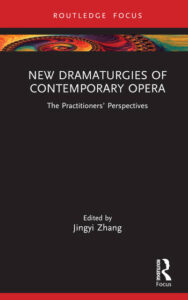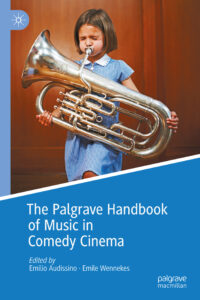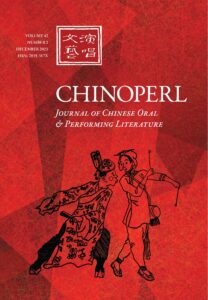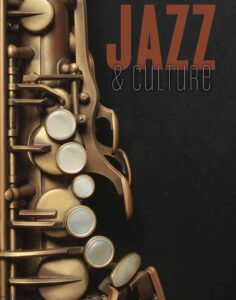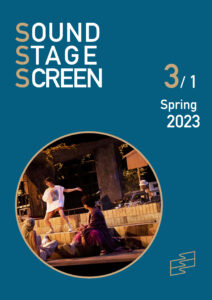Publications
Edited Volume:
Contributed Chapters:
“Introduction: Contemporary Opera and New Dramaturgies."
“Interrogating Operatic Decolonization in the Hypermobility Turn."
“An Interview with Noa Frenkel."
“An Interview with Du Yun."
“An Interview with Beth Morrison."
“An Interview with Pamela Z."
ReviewsOpera is a living art that has undergone constant transformation over the course of over four centuries of history. Those transformations encompass shifts in modes of composition, adaptation, staging, performance, and patronage that have been well documented by music historians. Far less attention, however, has been paid to the emergent practices that are revitalizing the operatic stage today, particularly from the standpoint of practitioners. New Dramaturgies of Contemporary Opera brilliantly steps into the breach by bringing together some of the world’s most innovative librettists, composers, directors, producers, and dramaturgs to reflect critically and creatively on their work.
Jeffrey Schnapp, founder and director, metaLAB (at) Harvard
As opera ponders new forms of address and explores non-traditional venues it also becomes a borderland between performers and their audiences but also a meeting place for the ever more porous areas of theory and practice. New Dramaturgies of Contemporary Opera chronicles this rapprochement all the while redefining contemporary opera as a cross-cultural genre.
Giorgio Biancorosso, editor of Sound Stage Screen
If two decades ago opera was unsettled and programmatically unsettling, in Zhang’s ingenious collection opera is an expanded field of cultural politics, unavoidably enmeshed with decolonial interventions and public spaces, with the imaginary politics of hypermobility, with the all-pervading sense of civic responsibility of any creative effort. ‘Dramaturgy’ then serves as a device that mobilizes a deeply felt engagement with the politics of creative practices, and with the necessary hybridizations and recontextualizations of the bodies of opera, in their overdetermined historicity. The essays collected here testify to the wealth of critical labours entailed by the creative process of 21st-century composers and producers, librettists, dramaturgs, and scholars – of their intense engagement with opera’s institutionality and cultural politics.
Alessandra Campana, Tufts University
Opera is a living art that has undergone constant transformation over the course of over four centuries of history. Those transformations encompass shifts in modes of composition, adaptation, staging, performance, and patronage that have been well documented by music historians. Far less attention, however, has been paid to the emergent practices that are revitalizing the operatic stage today, particularly from the standpoint of practitioners. New Dramaturgies of Contemporary Opera brilliantly steps into the breach by bringing together some of the world’s most innovative librettists, composers, directors, producers, and dramaturgs to reflect critically and creatively on their work.
Jeffrey Schnapp, founder and director, metaLAB (at) Harvard
As opera ponders new forms of address and explores non-traditional venues it also becomes a borderland between performers and their audiences but also a meeting place for the ever more porous areas of theory and practice. New Dramaturgies of Contemporary Opera chronicles this rapprochement all the while redefining contemporary opera as a cross-cultural genre.
Giorgio Biancorosso, editor of Sound Stage Screen
If two decades ago opera was unsettled and programmatically unsettling, in Zhang’s ingenious collection opera is an expanded field of cultural politics, unavoidably enmeshed with decolonial interventions and public spaces, with the imaginary politics of hypermobility, with the all-pervading sense of civic responsibility of any creative effort. ‘Dramaturgy’ then serves as a device that mobilizes a deeply felt engagement with the politics of creative practices, and with the necessary hybridizations and recontextualizations of the bodies of opera, in their overdetermined historicity. The essays collected here testify to the wealth of critical labours entailed by the creative process of 21st-century composers and producers, librettists, dramaturgs, and scholars – of their intense engagement with opera’s institutionality and cultural politics.
Alessandra Campana, Tufts University
Manuscript in Submission:
“Transmedia Activist Opera, Reconsidered: Elite Capture in White Snake Projects’ The Pandemic Trilogy (2020-2021).” Revise & Resubmit.
Book Chapter:
Review:
“Transformative Interracialism in Fred Ho’s Opera, Warrior Sisters: The New Adventures of African and Asian Womyn Warriors (1998),” in Jazz and Culture 7, no. 2: 106-110.
Performance Reviews:
"Renée Fleming's Cities That Sing." The Theatre Times. Sep 2023.
“In Our Daughter’s Eyes at PROTOTYPE 2023 Festival.” The Theatre Times. Jan 2023.
“Trade/Mary Motorhead at PROTOTYPE 2023 Festival.” The Theatre Times. Jan 2023.
“Undine at PROTOTYPE 2023 Festival.” The Theatre Times. Jan 2023.
“Note to a Friend at PROTOTYPE 2023 Festival.” The Theatre Times. Jan 2023.
“Mɔɹnɪŋ [Morning//Mourning] at PROTOTYPE 2023 Festival.” The Theatre Times. Jan 2023.
"Digital Sci-Fi Opera Red Giant: An Opera of Out Times." The Theatre Times. July 2021.
"Immersive Opera Laila at the 50th Hong Kong Arts Festival." The Theatre Times. June 2021.
